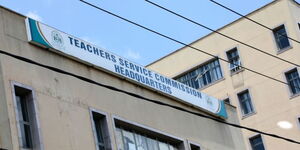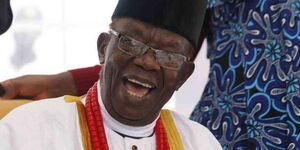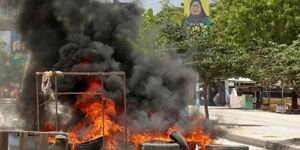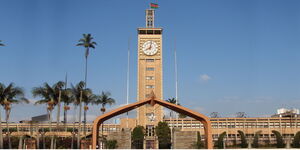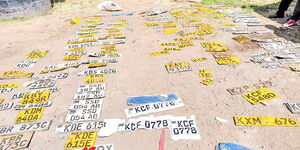Kiharu Member of Parliament Ndindi Nyoro was on Tuesday, July 15, critical of the sharp hike in fuel prices, accusing the government of misleading Kenyans.
Nyoro dismissed the Ministry of Energy’s explanation for the increase in pump prices, alleging that the government was engaged in “secret borrowing”.
Hours after the Energy and Petroleum Regulatory Authority (EPRA) released new pump prices, set to be in effect until August 14, the Ministry of Energy attributed the surge to international market fluctuations. However, Nyoro rejected the claim, arguing that global oil prices had peaked in 2024.
“We saw fuel prices go up drastically yesterday, and the explanation given by the government is not accurate. Blaming global oil prices falls short of the reality. Over the past year, the highest fuel prices we have seen were actually on June 17, 2024,” Nyoro stated.
According to the lawmaker, a large portion of the pump prices charged to Kenyans goes directly towards taxes and levies, a burden he says has had significant ramifications on the economy.
He went on to allege that the government quietly introduced an additional Ksh7 fuel levy during a period when global oil prices were dipping. According to Nyoro, this was more than a revenue-raising measure, as the levy was allegedly used as collateral to secure a Ksh175 billion loan.
“This money is not reflected in the government's books as debt. It can only pass as an illegal debt because whatever is not accounted for is illegal,” he added.
The MP, who was dismissed as chairperson of the Budget and Appropriations Committee in the National Assembly in March, also raised accountability concerns. He questioned the sustainability of using gazette notices to announce levies tied to long-term borrowing, warning banks against lending money backed by the fuel levy.
“If we continue using public levies as collateral for loans without parliamentary oversight, what will stop future lenders from securitising our VAT, PAYE, or NHIF? What will be left of Kenya’s financial sovereignty?” Nyoro posed.
In the latest review on Monday, EPRA revealed that the prices for Super Petrol, Diesel, and Kerosene had increased by Ksh8.99, Ksh8.67, and Ksh9.65 per litre, respectively.
Super Petrol will now retail at Ksh186.31, Diesel at Ksh171.58, and Kerosene at Ksh156.58 in Nairobi.
In EPRA's Energy and Statistics Report during the first half of the financial year 2024/2025, the authority revealed that the calculation of fuel prices each month was dependent on several different cost components.
At the top of these components are landed costs, which entail expenses incurred when petroleum products arrive in the country through Kenyan ports. These costs include shipping and insurance.
Another factor EPRA uses is distribution costs, as the authority calculates expenses relating to the transportation of fuel from import terminals to different retail outlets all over the country.

